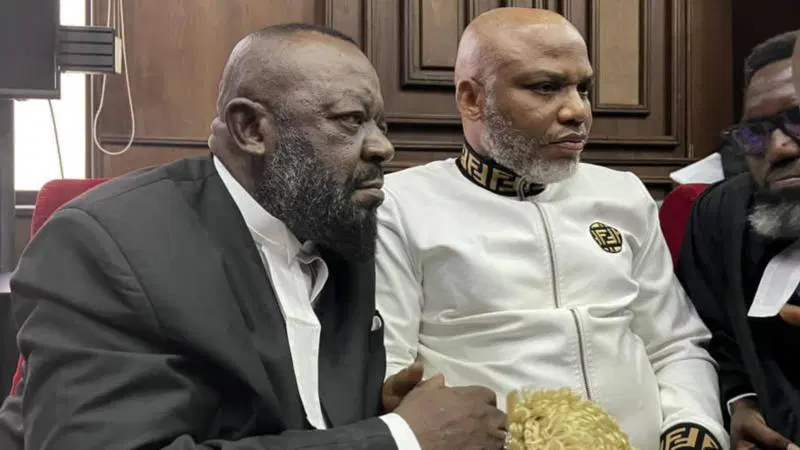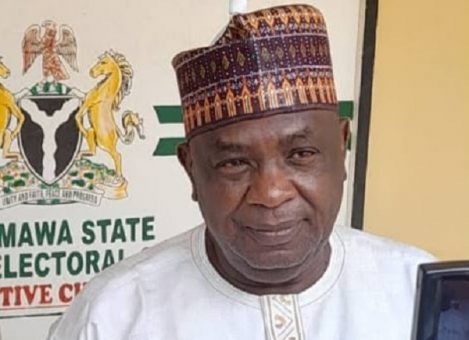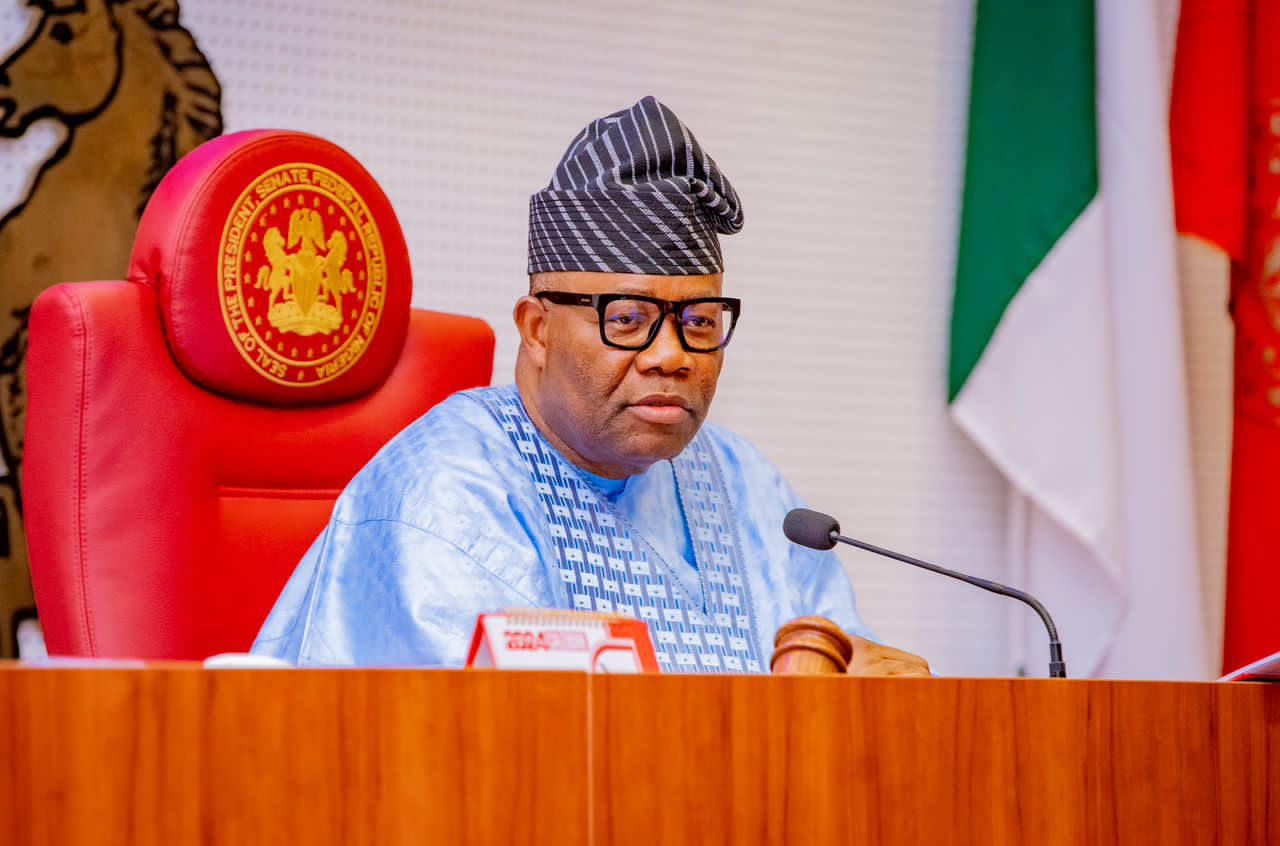Detained leader of the Indigenous People of Biafra (IPOB), Nnamdi Kanu, has declared he has “no case to answer” in his ongoing terrorism and treason trial, after the Federal Government closed its case on Thursday before the Federal High Court sitting in Abuja.
The development marks a turning point in the high-profile case, as Kanu’s legal team formally entered a no-case submission, arguing that the prosecution failed to establish a prima facie case against him that warrants further defence.
The Federal Government wrapped up its case after the fifth and final prosecution witness (PW-5)—an operative of the Department of State Services (DSS), codenamed “EEE”—testified behind a protective screen. The prosecution did not disclose his identity, citing security concerns.
According to the DSS operative, Kanu’s alleged inciting broadcasts were linked to the killing of 186 police officers and the destruction of 164 police stations during the nationwide EndSARS protests in 2020. However, under cross-examination, the witness admitted he had never met Kanu personally and only knew of him through media reports.
The witness also claimed his team compiled damage reports and collected documents such as death certificates and assessment reports of security losses allegedly tied to Kanu’s broadcasts. These documents were tendered and admitted by the court, although Kanu’s lawyers objected and said they would address their admissibility in the final written address.
Chief Adegboyega Awomolo, SAN, the lead counsel for the Federal Government, declared that the five witnesses and submitted evidence were sufficient to support the charges. “We are satisfied we have established the case. We hereby close the prosecution’s case,” he announced.
But Kanu’s defence team, led by Chief Kanu Agabi, SAN, countered swiftly with the no-case submission, a legal move made when the defence believes the prosecution has failed to provide enough evidence to require a formal response or defence.
Justice James Omotosho gave both sides 14 days each to file written addresses on the no-case submission and two days for replies. The case was adjourned to July 18, 2025, for adoption of the submissions.
Background of the Trial
Kanu was first arrested in 2015 and later granted bail in 2017 on health grounds. However, after a military invasion of his family home in Abia State—an event that resulted in casualties among his followers—he fled the country.
He was re-arrested in Kenya on June 19, 2021, and extraordinarily renditioned back to Nigeria on June 27. Since then, he has remained in custody of the DSS.
The original 15-count charge against him was reduced to seven after a Federal High Court struck out eight counts in 2022 for lack of substance. Later that year, the Court of Appeal ordered his release and dismissed the charges—but the Supreme Court reversed that decision on December 15, 2023, allowing the FG to proceed with trial on the remaining charges.
Charges and Allegations
Kanu is facing charges bordering on terrorism, treasonable felony, and incitement. A key part of the prosecution’s case is an allegation that his public statements and broadcasts incited attacks on state infrastructure and security personnel.
The most controversial of these claims was based on DSS intelligence linking him to the violence during the EndSARS protests—a link his legal team has dismissed as speculative and circumstantial.
If the court upholds Kanu’s no-case submission, he could be discharged immediately, potentially bringing an end to one of Nigeria’s most politically charged trials. However, if the court rules otherwise, Kanu will be compelled to enter his defence—a move that could prolong the trial and intensify national tensions over his continued detention.




